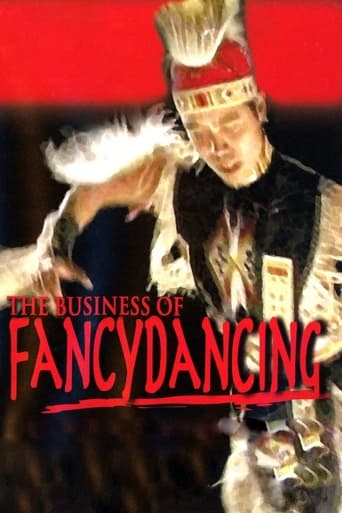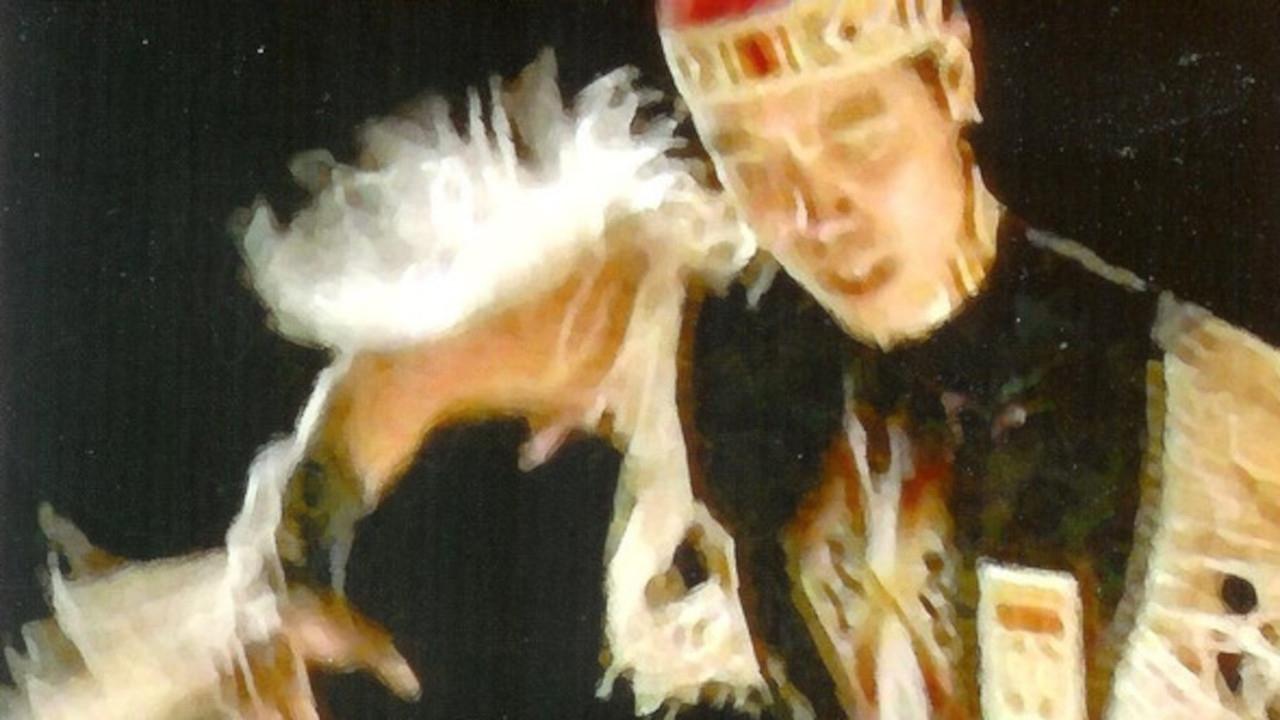HistoryFilmBuff
I actually agree with the person saying "Don't expect another Smoke Signals." SS in its own way deliberately tried to steer away from issues which might offend white sensibilities. This one doesn't. In fact it confronts them head on. It deals directly with colonialism, misdirected anger against whites, well meaning but clueless white liberals, and other minorities turning on each other. It's final message at the end, "As hopeless as things seem, keep singing," won't satisfy anyone expecting either a Hollywood happy-redemptive ending, or a throw your fist in the air pseudo revolutionary cliché. But it is more honest.
gradyharp
While we as a country are discovering/acknowledging the struggles of the different sects within the Middle East, tribal differences that are longstanding and divisive and painful, along comes another sensitive story about Native Americans in this country and how the scars of past and ongoing abuses of our 'reservation resolution' have affected the original peoples of this land. Sherman Alexie, a fine poet and novelist, has transformed his written works into a film that showers the viewer with insights into a problem about which few are cognizant - intratribal differences that provide schisms within the only root that binds.Seymour Poltakin (the very talented Evan Adams) is a famous poet who happens to be both Native American and gay. He is called back to his Reservation in Spokane, Washington for the funeral of his childhood friend Mouse (Swil Kanim) only to confront all of the reasons he has left the Reservation for the 'white man's world' where he has found both financial and emotional success. Seymour's best friend Aristotle (Gene Tagaban) had originally left the Reservation to go to college with Seymour, but quickly soured to the prejudiced outside world and returned to his Reservation and to an unfortunate life of alcoholism and drug abuse. The bulk of the storyline revolves around how these two once devoted friends parted ways, the philosophies of each are explored, and though Seymour finds moments of love in his home space, he is still content to return to his white man lover and his life he has chosen.There are many very tender and moving moments in this film: when Seymour is in conversation with Agnes (Michelle St. John) and when Agnes intones the Indian chants and songs at the funeral; Seymour's dialogues with his lover; scenes of quiet while Aristotle abuses himself with drugs; the weaving in and out of the beautiful dancing that flows through the film. The problem with the movie is the disparity of approaches in telling the story: an interview situation between Rebecca Carroll and Evan Adams is well written but breaks the mood of the poetic form of the story. The film is obviously low budget and in this case, for this viewer, the rough hand-held camera technique adds a quality of reality to what we are watching.The overall effect at the end of the film is a pang of pain in the heart having witnessed the generations of 'isolation' and the segregation of the Native Americans into spaces both geographical and sociological that have undermined a tremendously valuable asset to our history. That role of shame is one that will never leave us, and it is a gift that artists like Sherman Alexie can bring this to the public's attention. Recommended. Grady Harp
jonie v.
At cost of risking the authorial fallacy, I'll say that I took this film to be autobiographical. One advantage of having a talented writer do a film about a talented writer is that, when the protagonist reads his writing, you don't cringe (we should also have first-rate musicians write the score in movies about fictional musicians). In "The Business of Fancydancing" the writing is gorgeous and is what gives the film substance and shining power. Seymour Polatkin/Sherman Alexie's poetry makes up the bulk of the screenplay, whether in the form of actual poems (read by the protagonist or other characters, printed on still frames, or rendered in song), or as part of the dialogue. The film is non-linear and non-realistic: people don't always speak like real people and events don't follow one another in chronological fashion. But Alexie is brutally honest in his portrayal of the truth of his characters, and the film finally feels much more authentic than most made-to-look-realistic, traditional movies. It is one of the paradoxes of fiction that realism is frequently better achieved through non-realistic means."Fancydancing" is a wrenching and angry movie about identity, belonging, and race. Leading one's life as a Native American is clearly no easy job, and Alexie takes a very unsentimental look at the ordeals and dilemmas that come with a Native heritage. His characters are not especially likeable, and all make questionable choices. As Alexie makes clear, however, there are no "right" choices. Whether you stay or go, conform or depart, life's going to getcha and people are going to be mad at you.The poetry beautifully depicts the pain of this dilemma while at the same time showing the redemption that comes with living the dilemma, sticking with it, not giving in. The images are occasionally hokey, and some sequences could have been cut without any loss to the overall effect of the film. But this is a brave film with a brave, unsparing vision, and it deserves a wide viewership.
davidl-7
I saw this at the Portland International Film Festival on Feb. 10, 2002. Writer-director Alexie said they were still tinkering with it and might add in some scenes we did not see.The "plot" is fairly sketchy. Seymour Polatkin, a young and successful gay poet who left the Spokane Reservation to go to college and settle in Seattle, returns to the res for the funeral of a close friend, a violinist named "Mouse" who committed suicide. Also present are their childhood buddy Aristotle Joseph (the rather stereotypical "fierce Indian") and Agnes, a half-Indian, half-Jewish woman with whom Seymour had a passionate college affair before accepting his homosexuality, who has returned to the res to teach.Alexie regulars Cynthia Geary and Elaine Miles, familiar from "Northern Exposure" and Alexie's last film project, "Smoke Signals," are on hand in cameos.The movie is a sort of collage, with many flashbacks, scenes of various characters dancing in colorful costumes on a black stage, and cheap video footage the characters ostensibly shot of each other. The acting is mostly okay, though rarely inspired; the writing much the same. Camerawork is rather dull, though Alexie chooses lovely landscapes, moods, and colors for his shots.A narrative trick of questionable utility is "The Interviewer": a young black female journalist pinions several of the characters (particularly Seymour and Aristotle) with tough, condescending, and sometimes obvious questions in that same no-space of black stage. The writing for these scenes is decent, but I wasn't convinced of the need for them.Alexie readily admits to doing much improvisation and gutwork -- the film was shot in 14 days with 6 additional days of fill-in shooting -- and he likes to leave plenty of questions unanswered, from the Russian origins of his protagonist's name to the meaning of the dancing sequences, the reasons for Mouse's suicide, or a rather brutal scene where Ari beats up a stranded white motorist and insists Mouse join him. This is fine, and I had no problem with most of it; in fact, it was the more obvious imagery, such as Seymour slowly and dispiritedly doffing his dance outfit toward the end of the story when he leaves the res again, presumably forever, that I found irritating.Alexie said he was extremely annoyed by such films as "Finding Forrester," where a writer's talents (both the veteran's and the rookie's) are ballyhooed but never actually shown, so Seymour reads a number of his poems on the soundtrack over the visual action.In sum, this is a fair, promising independent feature that is hardly outstanding but takes some laudable risks and provides further welcome exposure to Native American culture, actors, and ideas.


 AD
AD



